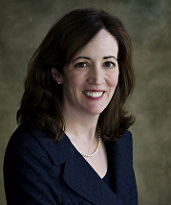Two weeks before the 2020 U.S. presidential election, the Initiative brought together respected leaders with diverse perspectives to examine the moral and political choices Catholics are facing in the midst of a global pandemic, economic crisis, racial reckoning, and hard-fought campaign.
Catholic voters are widely seen as a crucial constituency in this November’s election. The Catholic community is large, diverse, and found in key states which could decide who is elected president. Catholic voters are not a monolith. They differ by race and ethnicity, party and ideology, and Catholics for Trump and Catholics for Biden are making competing appeals. We have heard “You cannot be Catholic and a Democrat” and “Catholics cannot be true to their faith and vote for Donald Trump.”
Among the questions panelists discussed were:
- What is going on with U.S. Catholic voters? In different parts of the Catholic community? How might Catholics be decisive voters in the 2020 presidential election?
- How are President Donald Trump and former vice president Joe Biden and their campaigns reaching out to Catholic voters? With what impact?
- What are Catholics called to do in this election? Is abortion the “pre-eminent priority” as the U.S. bishops wrote? Should candidates’ “commitments, character, integrity” be critical as suggested in Forming Consciences for Faithful Citizenship?
- Using the principles of Faithful Citizenship, why would Catholic voters vote for Trump over Biden? Vote for Biden over Trump?
- What are the implications for the Church and for the nation regarding the roles of Catholics in this election?
Kim Daniels, associate director of the Initiative, moderated the conversation.
Resources
View a list of articles, websites, and other resources for this dialogue.
This Public Dialogue was part of the Initiative’s Faith and the Faithful series. It was co-sponsored by Georgetown's Institute of Politics and Public Service and was supported by the Democracy Fund.




